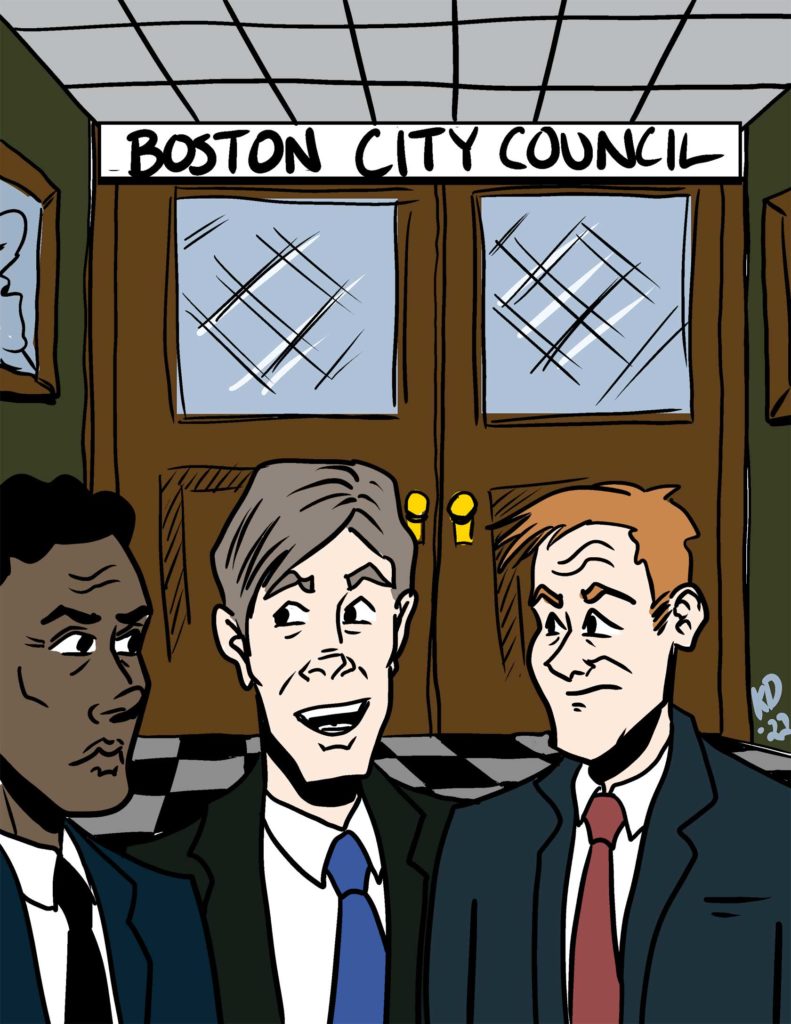
Prior to 1776, there was no place on the planet identified as the United States of America. Boston was the largest town of the Colony of Massachusetts Bay, an English settlement that included what are now the states of Massachusetts and Maine. Europeans arrived there from 1630 to 1691, and they lived under British law. After the American Revolution, the whole area became part of the United States of America. The Continental Congress was chosen to establish a constitution to serve as the foundation for the laws of the new republic.
The Constitution was ratified and became effective on March 4, 1789, with the first session of Congress. But even before that, the Supreme Court of Massachusetts had ruled in 1783, in accordance with the Massachusetts Constitution, that slavery was unconstitutional there. The federal census of 1790 found no slaves residing in the state. Boston became the capital of the anti-slavery movement.
While slavery had been permissible under English law, it did not eliminate all personal rights. Slaves could not be physically abused under British law. In fact, the case that brought about the end of slavery in Massachusetts occurred because Mum Bett, a slave, brought an assault and battery case against her owner. Once in court, she was encouraged to challenge the right of slavery as being opposed to the right of human equality established in the state constitution. So, she entered the case as Mum Bett and left as Elizabeth Freeman, a free citizen in 1783.
Consequently, no resident of Massachusetts could be held in slavery after 1783. Unfortunately, the members of the Boston City Council seem to be unaware of this historical truth. Perhaps they are confused because a resident of another state would be permitted to travel to Massachusetts prior to 1865 with a slave possessor who is a non-resident. Or perhaps the councilors are confused by the history of the Fugitive Slave Act.
Prior to the enactment of the federal Fugitive Slave Act, Boston was a desired goal of slaves escaping to freedom. Slave states were able to pass a federal law requiring those jurisdictions that harbored runaway slaves to return them to their owners. Numerous citizens and public officials in Boston violated federal law and combated bounty hunters intent on capturing runaway slaves. Bostonians should be applauded for their efforts to prevent the recapture of slaves.
The notion that Boston should apologize for the slave trade is misguided. And to suggest that Boston might be at all liable for reparations is absurd. Such language generates racial hostility at a time when the destruction of the goal of democracy is at stake.
Boston citizens are members of many different ethnic groups. Numerous future policies and ideas for social planning are likely to conflict, but there is no value in distorting the truth of the past. Slavery became unlawful in Boston in 1783. Where some individuals may have invested in the slave trade after that date, such conduct was not the responsibility of the city of Boston. An assertion by the Boston City Council that Boston owes anyone an apology is embarrassing. How can city councilors of such a historically significant city as Boston be so misguided?






